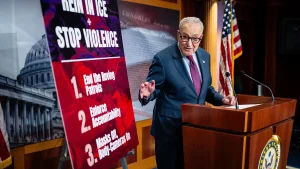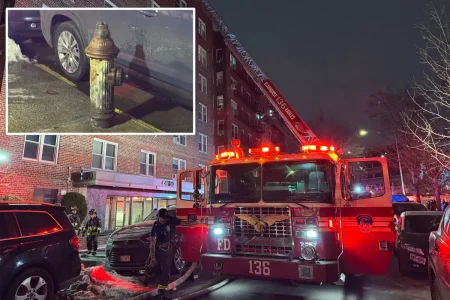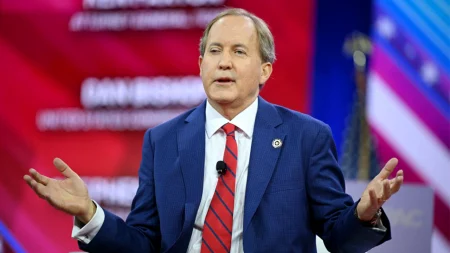Argentina’s Economic Gamble: President Milei’s Reform Agenda Faces Crucial Test at Home Despite International Backing
Milei’s Radical Vision Earns Washington’s Approval While Domestic Challenges Mount
In the grand halls of Washington last month, Argentina’s libertarian firebrand President Javier Milei received a hero’s welcome. Conservative audiences at the Conservative Political Action Conference (CPAC) erupted in applause as the self-proclaimed “anarcho-capitalist” denounced socialism and promised to dismantle decades of state intervention in Argentina’s economy. His address, punctuated by his trademark passionate rhetoric, earned him standing ovations and the explicit support of key U.S. policymakers impressed by his radical free-market agenda and pro-Western foreign policy stance.
“Argentina won’t be a breeding ground for the poisonous ideologies that have devastated our region,” Milei declared during his Washington visit, positioning himself as a bulwark against leftist influences in Latin America. The Biden administration, despite ideological differences with the right-wing economist, has signaled cautious support for Milei’s economic reform program, which includes slashing government spending, eliminating subsidies, and deregulating Argentina’s notoriously complex business environment. Treasury Secretary Janet Yellen praised Milei’s “decisive actions to address Argentina’s significant economic challenges,” while the International Monetary Fund approved a critical $800 million disbursement in January, providing crucial external validation for his economic shock therapy approach.
Economic Pain Fuels Growing Public Discontent as Reforms Cut Deep
Back home, however, President Milei faces a dramatically different political landscape. Seven months into his presidency, the honeymoon period appears to be ending as Argentinians grapple with the painful economic consequences of his austerity measures. Official statistics show the economy contracted by 5.1% in the first quarter of 2023, with unemployment rising to 7.7% in major urban centers. Inflation, while slowing from the catastrophic 211% annual rate Milei inherited, still hovers above 120%, devastating purchasing power for millions of Argentinians. In Buenos Aires’ once-bustling Villa Crespo neighborhood, textile factory owner Martín Rodríguez explained the harsh reality: “I’ve had to let go half my staff since January. People understand we needed changes, but they didn’t expect this level of suffering with no end in sight.”
The human cost of Milei’s economic reset is becoming increasingly visible across Argentina’s social landscape. Food bank demand has surged 40% according to the Red Solidaria charity network, while public hospitals report critical shortages following budget cuts. Public sector layoffs have triggered increasingly confrontational street protests, with police using tear gas last week to disperse demonstrators blocking the iconic 9 de Julio Avenue. Perhaps most concerning for Milei’s administration is the erosion of support among the middle class, who initially backed his anti-corruption platform but now face skyrocketing utility bills after subsidy cuts. “I voted for change, not for this impossible situation where my entire salary goes to basic services,” said Claudia Fernández, a 42-year-old teacher from Córdoba, whose electricity bill has increased fivefold since January.
Political Capital Erodes as Corruption Allegations Taint Reform Agenda
Complicating Milei’s reform agenda is a series of corruption allegations that have undermined his anti-establishment credentials. His Social Development Minister Sandra Pettovello faces a criminal investigation over the discovery of 5,000 tons of expired food in government warehouses while hunger increases nationwide. The scandal, dubbed “FoodGate” by local media, has particularly damaged Milei’s image as several officials appointed by his sister and presidential secretary Karina Milei have been implicated in the investigation. Senator Victoria Villarruel, Milei’s vice president and crucial conservative ally, has publicly distanced herself from the administration’s handling of the scandal, creating visible cracks in the governing coalition.
Political analysts note these corruption allegations strike at the heart of Milei’s political identity. “His entire campaign was built on being the outsider who would eliminate what he called the ‘political caste’ and its corrupt practices,” explained Carlos Malamud, senior analyst at the Real Instituto Elcano. “These scandals make him look increasingly like the very establishment he promised to overthrow.” Public opinion polls reflect this growing disillusionment, with Milei’s approval rating falling from 55% in December to 38% in June according to a recent survey by consulting firm Poliarquía. This erosion of political capital comes at a critical moment as Milei attempts to push structural reforms through a Congress where his La Libertad Avanza party holds just 38 of 257 seats in the lower house and 7 of 72 Senate positions.
Crucial Legislative Battle Looms as Opposition Regroups
The upcoming midterm legislative elections, scheduled for October 2025, now represent a crucial battleground for Milei’s reform agenda. Political observers increasingly view these elections as a referendum on his economic program, with opposition forces regrouping around public discontent. The center-left Peronist coalition, despite its defeat in last year’s presidential election, maintains strong organizational structures through unions and local governments that are mobilizing against Milei’s austerity measures. Meanwhile, traditional center-right parties that initially supported Milei’s economic direction are increasingly distancing themselves from his administration’s implementation methods.
“Milei’s strategy depends on showing economic improvement before next year’s elections,” said political scientist María Esperanza Casullo of Argentina’s National University of Río Negro. “If inflation doesn’t significantly decrease and growth doesn’t resume by early 2025, he risks losing the legislative support needed to continue his reform agenda.” The president faces a particularly challenging timeline, as economic experts suggest his stabilization measures will likely cause continued contraction throughout 2024 before potentially yielding positive results. Former Central Bank economist Martín Rapetti notes that “the historical pattern with shock therapy approaches is that pain comes before gain, but elections don’t always align with economic cycles.”
International Support Provides Leverage But Cannot Replace Domestic Legitimacy
President Milei’s strong international backing, particularly from Washington and international financial institutions, provides him valuable political leverage and economic breathing room. The IMF’s continued support has been crucial in stabilizing Argentina’s volatile financial situation, while potential investments from American companies could help jumpstart economic recovery. During his Washington visit, Milei met with executives from major energy corporations interested in Argentina’s vast Vaca Muerta shale formation, potentially worth billions in development. His alignment with U.S. strategic interests, including breaking with his predecessor’s closer ties to China and Russia, has also generated diplomatic goodwill that translates into concrete economic opportunities.
However, international experts caution that external support alone cannot substitute for domestic political legitimacy. “The history of IMF-backed reform programs in Latin America shows that without sustainable social consensus, even technically sound economic policies eventually collapse under political pressure,” warned Rebecca Hanson, Latin America specialist at the Council on Foreign Relations. For Milei, the challenge now is translating his international credibility into domestic results that ordinary Argentinians can experience in their daily lives. As Buenos Aires taxi driver Carlos Gutiérrez put it while driving past the presidential Casa Rosada, “It’s good that important people in other countries like our president, but they don’t have to live with empty refrigerators and bills we can’t pay. Eventually, the people here decide who stays in that pink house, not Washington.”
As President Milei approaches the critical one-year mark of his administration in December, the contradiction between his international standing and domestic challenges encapsulates Argentina’s precarious position. The coming months will determine whether his radical economic experiment represents the long-awaited solution to Argentina’s chronic economic instability or another failed attempt at reform in a country that has seen too many false dawns. For now, both Milei’s supporters and critics can agree on one thing: Argentina is undergoing its most significant economic transformation in a generation, with consequences that will reshape the nation’s future far beyond the next electoral cycle.








